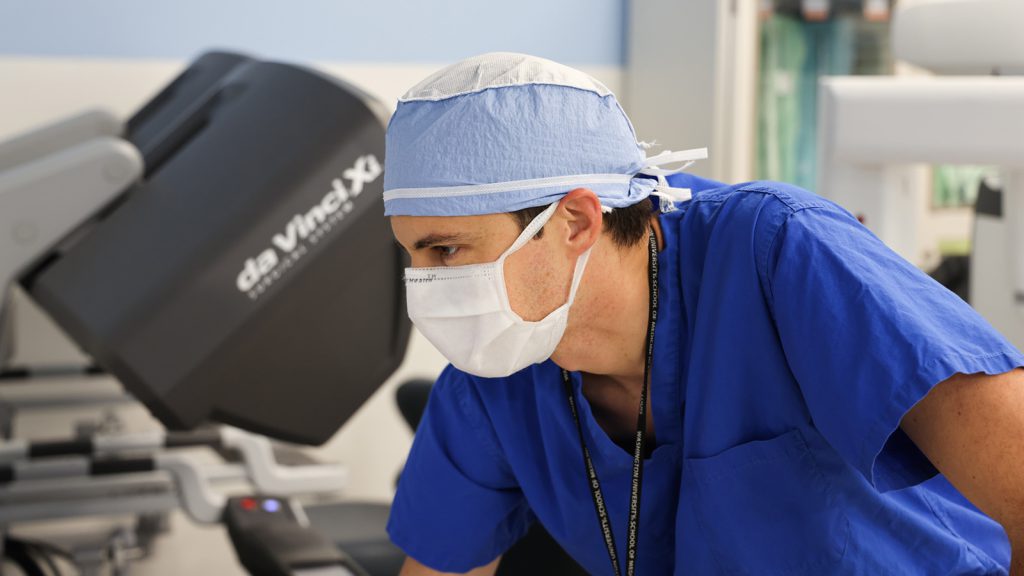
What to Expect Before and After Surgery
Once you’ve scheduled your surgery, you and your doctor will discuss how you should prepare before the operation.
Depending on the type of surgery, your doctor might give you a booklet of information, called a patient journey guide. It can be helpful to review this information and ask your care team any questions. Following the instructions in your patient journey guide will help you have the best outcome after surgery.
You should also know what to expect after your surgery. Your expected recovery time, length of hospital stay, and any limitations on lifting or activity are all important to understand before having surgery.
Scheduling Your Surgery
If you are planning on having surgery, first you will meet with your doctor for an initial visit. During this visit, your doctor will ask questions about your medical history and perform a physical exam. Your doctor may order other tests, such as blood tests or imaging exams, to help with diagnosis. When these tests are complete and you have a diagnosis, your doctor can recommend if surgery is right for you.
You might need to take some steps to get healthy enough for surgery before you can schedule the operation.
Once you have scheduled your surgery, you should find a responsible adult who can drive you to and from the hospital and help you on the day of your surgery.
Make any arrangements to take time off work if needed. Your doctor will tell you how long it should take before you can return to work. Keep in mind that everyone’s recovery is different.
The Day Before Surgery
The day before surgery, make sure to follow all instructions and restrictions from your surgeon. This will help you be ready for surgery when you get to the hospital and will help you have the best possible outcome.
There are some common steps most people will need to follow the day before surgery. Make sure to follow the specific instructions given by your surgeon. These often include:
No Food or Drink
Your surgeon may tell you not to eat or drink anything after midnight the night before surgery. Check with your surgeon to see if it is OK to take sips of water with any medicines you are instructed to keep taking. You should also stop drinking water at least 2 hours before arriving at the hospital.
You should not drink any alcoholic beverages for 48 hours before your surgery.
Medicine
You will receive instructions from your surgeon or a specialist at your Center for Preoperative Assessment and Planning (CPAP) appointment about what medicines you should or should not take before surgery. Medicines you may need to stop before surgery often include blood thinners, non-steroidal anti-inflammatory drugs (NSAIDs), and certain vitamins and supplements. Please follow all instructions for stopping any medicines before surgery.
Prepare Your Skin for Surgery
Before surgery, your entire body needs to be as clean as possible. Follow your surgeon’s instructions or the steps in your patient journey guide to clean your skin before surgery. This includes:
- Taking a shower using an antiseptic or antibacterial soap
- Wearing clean clothes
- Avoiding lotions, powders and creams

The Day of Surgery
Make sure to get to the hospital 2 hours before your scheduled surgery. A team member from your surgeon’s office will call to confirm your arrival time a day or two before your surgery.
Pre-surgery
Hospital staff will give you hospital clothing, an ID bracelet, and an explanation of the surgery. Staff will ask you questions about your scheduled surgery and provide any paperwork you might need to complete.
Your loved ones will be able to stay with you until it is time to go to the operating room (also called the OR), as long as it is safe for them to be in the hospital with you.
Your anesthesiologist will meet with you to review your medications, health history and pain management plan. Your surgeon will also meet with you to review the plan for your surgery.
You will have an intravenous tube (also called an IV) placed in your arm to give you fluids and medications
During Surgery
In the operating room, your surgical team will do a final check to make sure you are ready for surgery. This might include additional cleaning for your skin as well as shaving the area around your surgery, if necessary.
During your surgery, your team will take excellent care of you. They will check on your breathing, heart rate, and blood pressure.
Your surgical team will update your loved ones during surgery so they always know how you are doing.
The length of your surgery will depend on the type of procedure and your specific condition. Most hernia repairs take a couple of hours, though the exact time could be shorter or longer. You and your doctor will discuss how long the repair might take before you have surgery.
Right After Surgery
Once your surgery is over, a member of the surgical team will come talk with your loved ones.
You will be in the recovery room for a couple of hours before you go into a hospital room or are cleared to be discharged home. It will take some time for you to feel fully awake and alert after waking up from anesthesia. Your care team will continually monitor you during this time.
Different kinds of medical equipment will help you during your recovery. Depending on your surgery and condition, this equipment might include drains, catheters, monitors, and other devices. These are explained in your patient journey guide, and your team can help you understand any equipment involved in your recovery.
Your Hospital Stay
Depending on your health and the type of surgery you have, you might be able to go home the same day as your surgery, or you may need to be admitted for an overnight hospital stay. Your team will discuss what to expect before your surgery.
After hernia surgery, many people can go home the same day. This is especially true if you had minimally invasive surgery, which uses smaller cuts or incisions that heal more quickly than traditional open surgery.
Some people may need to stay in the hospital overnight. If your hernia is more complex, or if you are recovering from other abdominal surgeries, your hospital stay might be longer.
Leaving the Hospital
When it is time for you to leave the hospital (also called discharge), you will receive written instructions on how to take care of yourself at home. Every patient is different, so your care instructions will be personalized to your needs.
If you were admitted to the hospital, your discharge will happen once any medical problems are resolved, you have a normal diet, your pain is under control, and you can complete activities of daily living without much help.
You will have any devices, including your IV, removed before you leave the hospital. At this time, your doctor might order physical or occupational therapy if necessary to help you get back to regular activity levels.
Your loved ones can help by making sure you are comfortable on the trip home. If you live far from the hospital, make sure to stop every hour to move around, which helps prevent blood clots and DVT.
Make sure to follow any activity recommendations or restrictions at home. Most people should try to walk every day to improve their recovery. Your doctor will likely suggest you avoid intense exercise for a while after surgery. How long you should wait before exercising depends on the type of surgery you had and how you are healing. Your doctor will also give you lifting restrictions. Avoid lifting anything heavy to prevent incisional hernias from happening.
Recovery After Hernia Surgery
Your team will prepare you for recovery after surgery. There are several ways you can improve your recovery to get back to normal life after surgery.
Move After Surgery
Getting up and walking after surgery helps improve your recovery. Your team will help you safely move once you are awake and alert. Please follow all instructions from your care team for moving and exercising after surgery.
Moving after surgery also helps prevent blood clots. Blood clots can form when you rest without moving for too long. A nurse can help you get up and move regularly to prevent blood clots from forming in veins deep inside your body, called deep vein thrombosis or DVT. A nurse may also help you wear pumps around your legs while in the hospital to prevent DVT. These are wraps that inflate with air to increase blood flow.

Pain After Surgery
You might have some pain after surgery. Every person’s experience of pain will be different, but pain should typically only last a few days to weeks after surgery. Many patients are pain-free about a week after surgery.
You and your doctor will discuss how to safely manage your pain. Your doctor will likely recommend over-the-counter pain medicines, as well as different kinds of therapy for some people.
Prevent Infections
Your care team will give you techniques and devices to help you prevent infections in your lungs and skin.
A device called an incentive spirometer can help you take deep breaths to avoid a lung infection such as pneumonia.
Washing your hands with soap and water and using antiseptic soap as instructed will help you prevent skin infections after surgery.
Diet After Surgery
It is normal not to have much appetite after surgery. Even if you have little or no appetite, it is important to get the nutrition your body needs to heal. Your doctor will recommend when to start eating after surgery. Some common advice for eating after surgery is:
- Start with a clear liquid diet.
- Move on to small portions of healthy foods.
- Eat foods high in protein to help you heal after surgery.
- Try to eat several small meals, instead of a few big meals.
When to Contact Your Surgeon
Your surgeon will schedule any planned follow-up appointments to check on your recovery. If you have any questions or concerns after surgery, please call the Washington University Hernia Center office. We are here to help before and after surgery.
Call your surgeon immediately if:
- You notice a new lump where your hernia was before surgery
- You have a fever greater than 101.5°F
- You have concerns about your wounds or dressings
- There is redness, swelling, or increased pain at the incision site
- A large amount of blood soaks through the incision or bandages
- There is yellowish-white fluid (pus) coming from the incision
- There is a bad smell coming from the incision
- There is any drainage from the incision that lasts longer than 1 day
- Your pain does not get better after taking pain medication
- You feel sick to your stomach (nauseous) or throw up (vomit) and this lasts for more than 1 day
- You do not have a bowel movement for 3 days or more
- You develop diarrhea lasting 24 hours or more
- You develop any reaction or side effects to your medicines
- You develop a skin rash, hives, or itching
- You develop extreme pain, significant swelling, redness, or a warm and tender feeling in your arm or leg
- You have abdominal or groin pain
- If you are unable to eat or drink
- If you are unable to pass gas for more than 2 days
Contact the Washington University Hernia Center: (314) 362-9000
Minimally Invasive Surgery
Minimally invasive surgery offers smaller incisions, quicker recovery times and less pain for most patients.



